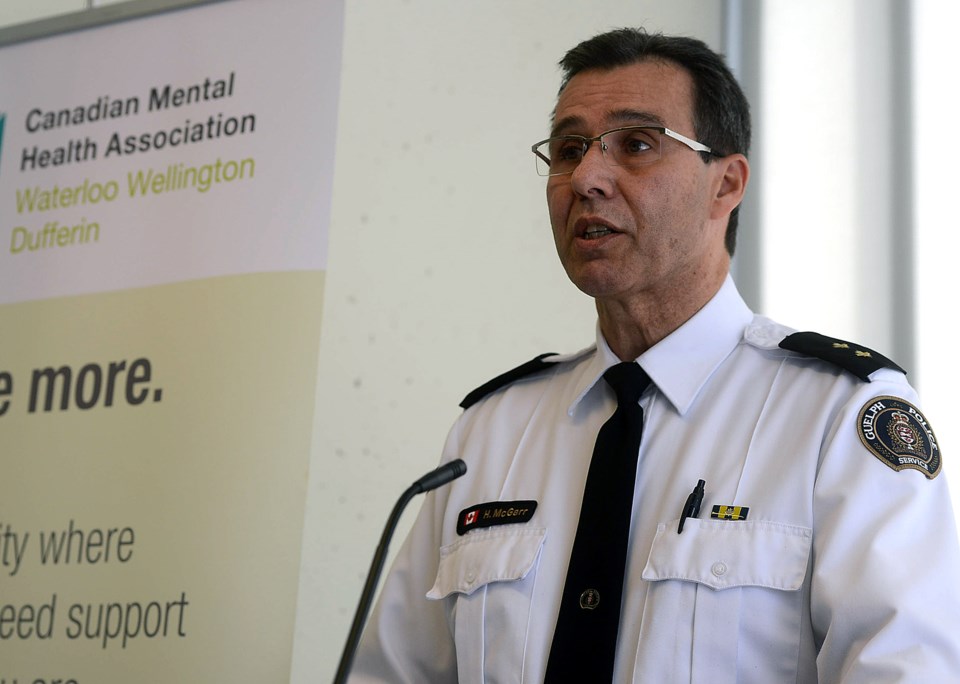Human trafficking in Guelph as it pertains to the sex trade is a growing concern say Guelph Police.
On Friday they received funding to help combat the problem.
Guelph Police will be using a $64,000 grant, some of which will be used to hire a facilitator co-ordinator who will train front line officers on how to identify, access and help victims of human trafficking.
The funding was one of three grants totalling $200,000 announced by Guelph MPP Liz Sandals at the Canadian Mental Health Association Waterloo-Wellington-Dufferin office.
"All share a focus on making the community safer," said Sandals.
Guelph Police Insp. Howard McGarr said human trafficking is "a legitimate and growing problem" in Guelph.
"We're talking about human trafficking as it relates to sex trade workers," McGarr said.
"The sex trade profession has changed as such that it's not all on the street corner, it's online and that makes it very accessible."
McGarr said the funding will help train Guelph Police to be even more proactive in reaching out to sex trade workers, "offering them an opportunity, if they chose, to come away from the lifestyle."
A second grant, related to that of the Guelph Police, will see Victim Services Wellington receive $66,500 to hire a human trafficking support worker who will work in Guelph and Wellington County.
"Human trafficking victims are way moe complex than other victims right now," said Victim Services Executive Director Liz Kent. "In the last few years we've definitely seen an increase.
A third grant of $69,500 goes to CMHA-WWD's Gatekeeper Project aimed at educating and creating awareness in community service personnel who have regular contact with vulnerable elderly adults and those potentially at risk of abuse or neglect.
It will be used to train people in everyday life throughout Wellington County - bus drivers, store clerks, coffee shop workers, library workers etc. - who have regular contact with the elderly, said Jane McKinnon Wilson, Waterloo Wellington Geriatric Systems Coordinator.
"This funding will provide education for enhanced awareness for formal services within health care and across the community and also informal services," McKinnon Wilson said.
Funding for the grants comes from the Ontario Ministry of Community Safety and Correctional Services' Proceeds of Crime Front Line Policing Grant and the Safer and Vital Communities Grant.
